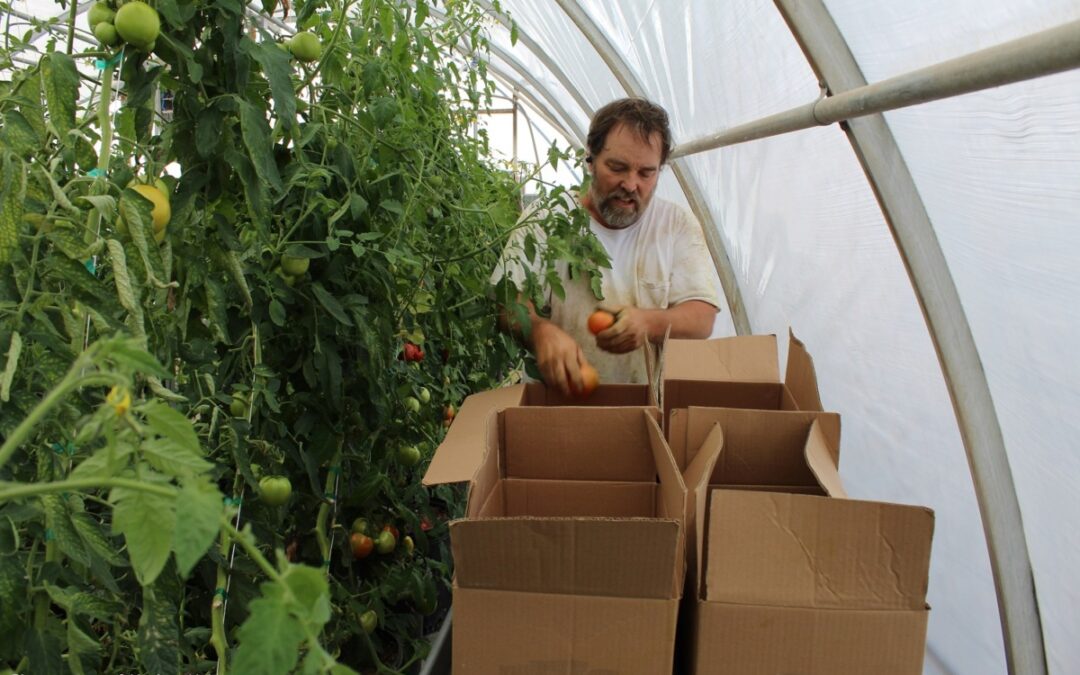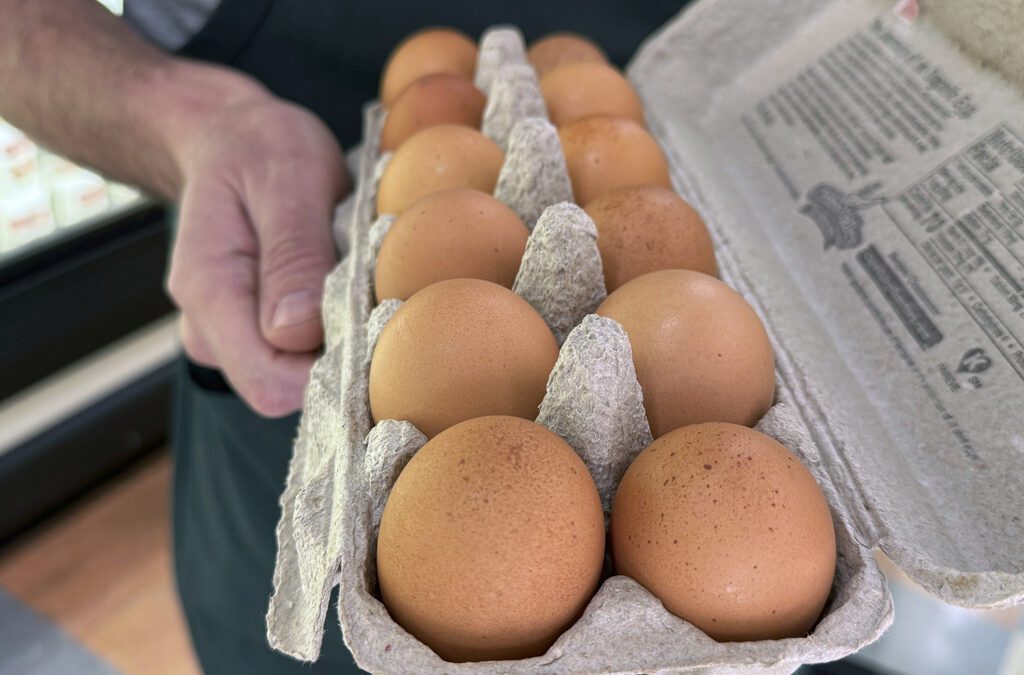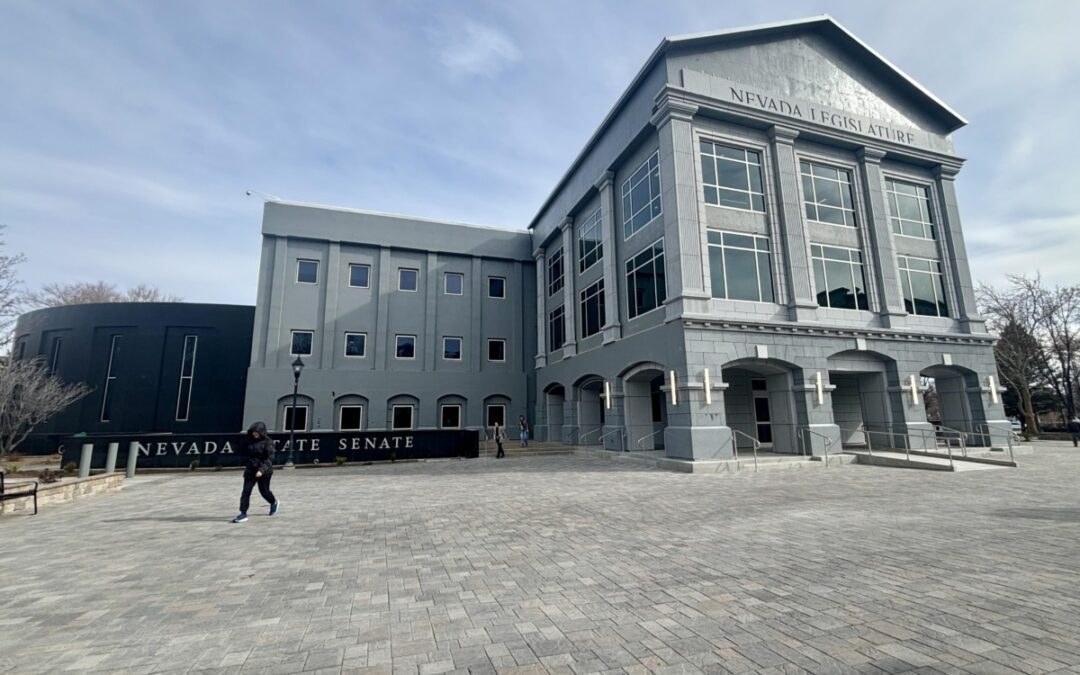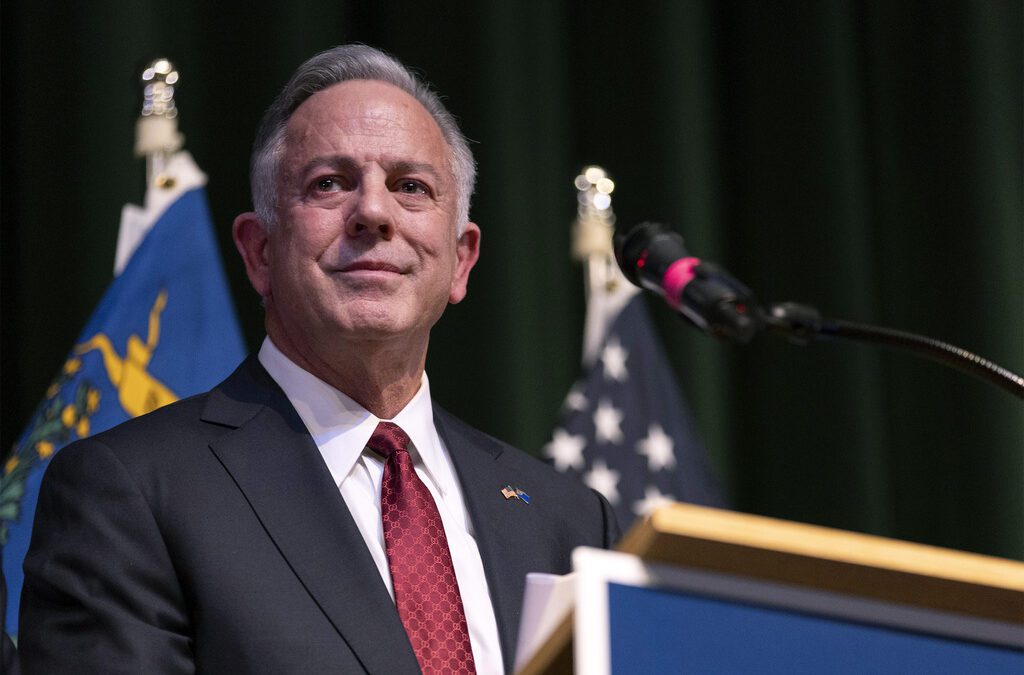
Nevada Legislature building housing the Nevada state senate and assembly in the state capital Carson City Nevada. (Photo by: Education Images/Universal Images Group via Getty Images)
The Nevada Economic forum projected that lawmakers will have $12.4 billion to construct the state general fund over the coming two years, but warned that Trump’s proposed tariffs and mass deportations could hinder employment levels.
Nevada lawmakers are projected to have roughly $12.4 billion to construct the state’s general fund over the next two years, according to a plan forecasting record-high tax revenue that was approved Monday by the Nevada Economic Forum.
That figure is approximately $412 million more than what the state is projected to collect until the end of this fiscal year, which ends in June, and was calculated by the panel’s five private-sector economists at their semi-annual gathering Monday.
The budget from the 2023-2025 biennium was forecasted to bring in roughly $11.6 billion in tax revenue, but the state beat those expectations and brought in closer to $12 billion, forecasters said during the meeting. Projections could change again when the panel meets again in May, where an updated forecast could be released.
The new projected figure for the 2025-27 fiscal biennium marks a seven-percent increase compared to the most recent budget, according to The Nevada Independent, which Republican Gov. Joe Lombardo signed into law in 2023. Sales taxes and gaming taxes were the largest sources of revenue for the state, bringing in a combined $5.77 billion and accounting for roughly 21% and 16% of the general fund’s revenue, respectively.
Before any future budget is enacted into law, Lombardo, entering his second legislative session, will have to work alongside the Democratic-controlled legislature. State legislators will construct the budget based off the one submitted by Lombardo in January, but the governor still holds veto power to reject certain measures.
In 2023, lawmakers were forced into a one-day special session to finish the budget after failing to reach support for an omnibus bill with two-thirds majority required to be sent to Lombardo’s desk. Though Democrats next year will again control both the assembly and state senate, any measures passed into law will require some degree of bipartisan support.
Lombardo is expected to formally submit his proposed budget to the Democratic-controlled legislature in January. A spokesperson for Lombardo’s office declined to comment on the forecast.
Panelists on Monday said while they expect revenue to stay largely unchanged, the success of largescale tourism events like the Las Vegas Formula 1 Grand Prix, Super Bowl LVIII, and the opening of the Las Vegas Sphere make it difficult to forecast future tax revenues.
Ultimately, the panel opted for more conservative projections, citing potential policies from the incoming administration of President-elect Donald Trump — such tariffs as high as 25% on imports from Canada and Mexico, and as high as 60% on Chinese imports, as well as threats to carry out the largest mass deportation effort in modern history — which could negatively impact Nevada industries like hospitality and construction.
Emily Mandel, an economist for Moody’s Analytics, a research firm that contracts with the state economic forum, showed data with the panel that showed Nevada as one of five states, along with California, New York, Florida, and New Jersey as those with foreign-born workers making up at least 22% of the workforce in the state. Mandel added that a disruptance to the supply of workers could hinder local labor markets, especially hospitality-dependent sectors in Las Vegas and Reno.
“If we have more restrictive immigration policy, if we have deportations or more restrictive legal immigration, for example, that will reduce the labor force, potentially impacting hospitality, potentially impacting building and some of these other areas that rely heavily on immigrant labor,” she said. “So it’s something to take note of as we think about the outlook for employment.”

USDA cancels funding for popular locally grown food programs in Nevada
By Jeniffer Solis - Nevada Current The U.S. Department of Agriculture has axed two programs that gave Nevada schools and food banks more than $6...

State bill would allow immigrant parents to designate legal guardians for kids if they’re deported
Assembly Bill 460 would create a legal process that authorizes a parent or guardian to pre-designate another person to act as a child’s primary...

Do you care about IVF access in Nevada? These senators have a plan to protect it.
A group of Nevada Democrats wants to protect in vitro fertilization (IVF) in the state—and they want to make it more accessible for people to get....

Bill to suspend egg regulations sails through Nevada legislature, awaits Lombardo’s signature
While the bill seeks to allow officials to temporarily suspend the state’s prohibition on non-cage-free eggs, one expert told The Nevadan it may...

Nevada legislators’ priorities taking shape during first week of session
While Democrats and progressives plan to pursue bills to bolster tenants’ rights and universal school meals, Republicans are prioritizing expanding...

Four takeaways from Gov. Joe Lombardo’s State of the State address
In unveiling his $12.7 billion executive budget, Nevada’s Republican governor outlined the need for bipartisan solutions to bring down prices and...





